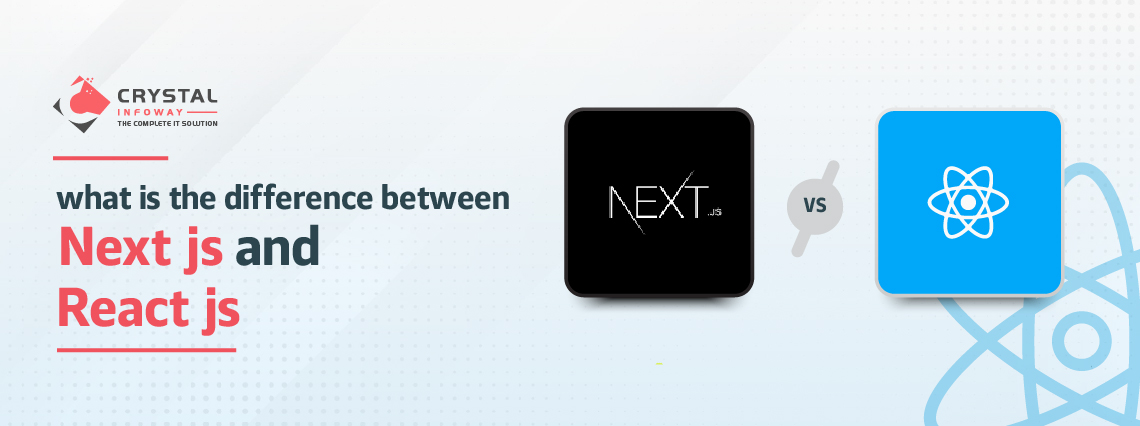
Request a Call Back
Enter your contact details and one of our friendly team member will be in touch soon!.

Enter your contact details and one of our friendly team member will be in touch soon!.

ReactJS and NextJS are two popular open-source JavaScript frameworks that allow developers to create dynamic and responsive web applications. While ReactJS is focused on building user interfaces (UIs), NextJS provides a framework for server-side rendering and advanced features such as static site generation. In this blog, we'll explore the differences between ReactJS and NextJS, and help you determine which one is best suited for your project.
ReactJS is a popular front-end JavaScript library developed by Facebook that allows developers to build reusable and declarative UI components. It's a flexible and efficient framework that helps developers create dynamic and interactive web applications with ease. ReactJS uses a virtual DOM to update only the parts of the UI that have changed, making it faster and more efficient than traditional DOM manipulation.
One of the main advantages of ReactJS is that it offers a simple and intuitive programming model, making it easy to learn for developers who are new to the framework. It also has a large and active community, with many resources and plugins available to developers.
NextJS is a popular open-source framework built on top of ReactJS that allows developers to build server-rendered web applications. It provides a robust set of features for server-side rendering, static site generation, and client-side rendering, making it an attractive option for developers looking to create performant and SEO-friendly web applications.
One of the main advantages of NextJS is that it provides a seamless way to switch between server-side rendering and client-side rendering. It also supports static site generation, allowing developers to generate static HTML files at build time, which can greatly improve the performance and SEO of web applications.
Server-Side Rendering
ReactJS does not offer built-in server-side rendering, while NextJS provides a framework for server-side rendering. Server-side rendering allows web pages to be rendered on the server and sent to the client as HTML, which can greatly improve the performance and SEO of web applications.
NextJS supports static site generation, which generates static HTML files at build time. Static site generation allows web applications to load faster and improves SEO by serving static HTML files to search engines.
ReactJS does not provide a built-in routing system, while NextJS provides a routing system that allows developers to define routes and associated components. NextJS also provides dynamic routing, which allows developers to define dynamic routes based on URL parameters.
ReactJS does not provide a built-in data fetching system, while NextJS provides a data fetching system that allows developers to fetch data on the server and pass it down to the client. This can improve the performance and SEO of web applications by reducing the time to first contentful paint (TTFCP).
ReactJS applications can be deployed on any web server, while NextJS applications require a Node.js server to handle server-side rendering and routing.
When it comes to choosing between ReactJS and NextJS, it ultimately depends on your project requirements and development goals. If you're looking to build dynamic and interactive user interfaces, ReactJS is a great option. If you're looking to build server-rendered web applications with advanced features such as static site generation and SEO optimization, NextJS is the way to go.
In summary, ReactJS is a powerful front-end JavaScript library that allows developers to build reusable and declarative UI components. NextJS is a framework built on top of ReactJS that provides a set of advanced features for server-side rendering, static site generation, and client-side rendering. Ultimately, the choice between ReactJS and NextJS will depend on your project's specific requirements and the expertise of your development team.


In the emerging global economy, e-commerce...
Read More
Are you looking for top mobile app develop...
Read More
It is no secret that the website is the sp...
Read More